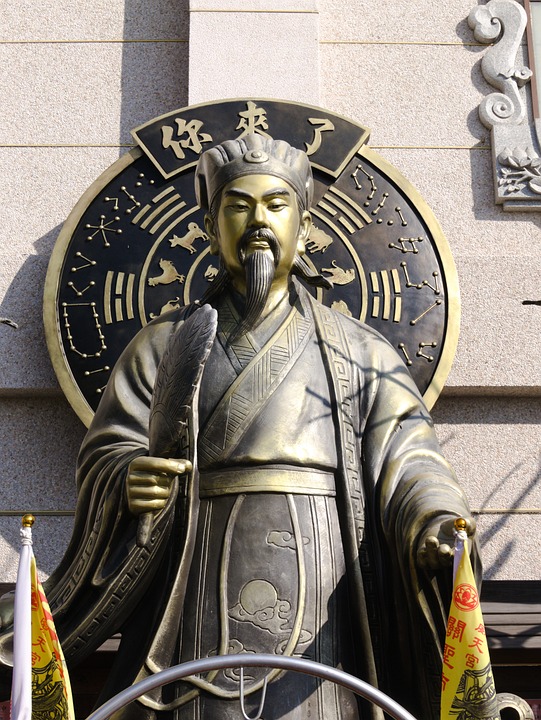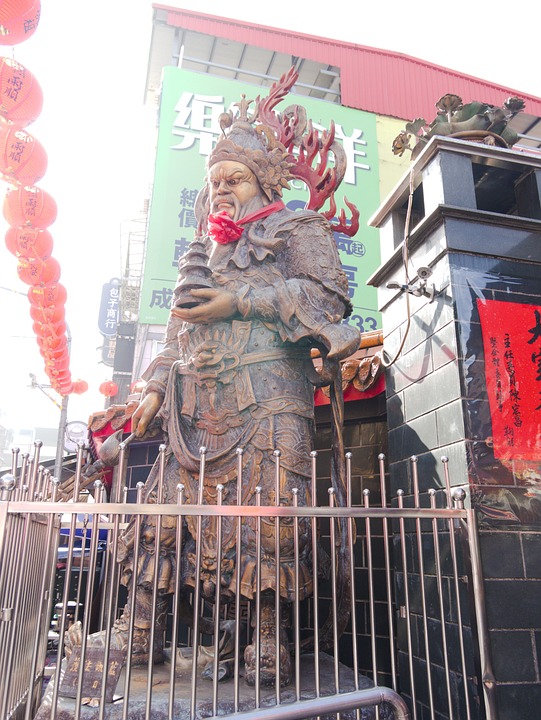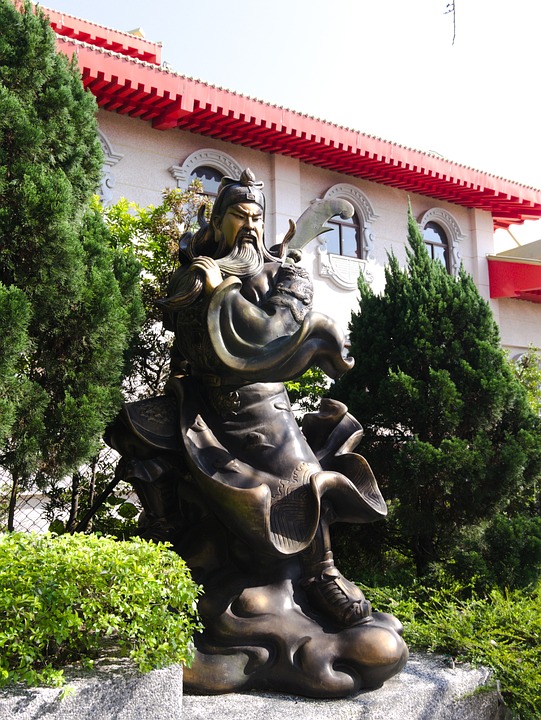34 Martial Arts – 武侠 (Wǔxiá)
M. C. Haltek
simplified Chinese: 武侠; pinyin: Wǔxiá
Martial Arts Heroes
Wǔxiá is a genre of Chinese fiction featuring martial artists in ancient China. Wǔxiá means “martial arts chivalry” or “martial arts heroes.” There is often an element of mysticism with the usage of superhuman abilities, cultivation, and items like miracle pills or drugs. Traditionally, it was used for historical fiction but has since been popularized to apply to Chinese opera, manhua (Chinese comics), TV shows, movies and films, books, and video games. It is commonly found and produced in China, Hong Kong, and Taiwan, especially in manhua and films. The creators of the genre are often attributed to Jin Yong, Gu Long, and Liang Yusheng. A wǔxiá film’s setting must have a time period hundreds of years in the past (mostly Yuan, Ming, or Qing Dynasty) and is set in China.
The 武 (wǔ) refers to martial arts, while the 俠 or 侠 (xiá) refers to chivalry or honorable warriors. This is typically a male lead, who has some type of martial arts prowess and is kind-hearted. Historical examples of this include Guan Yu, Ip Man, and Li Shuwen. Contemporary examples include Jackie Chan, Bruce Lee, and Donnie Yen. There is often a female lead acting as a romantic interest for the xiá and is usually beautiful while also excelling at martial arts.
There is an emphasis on martial arts, physical prowess, miracle drugs/medicine, and secret manuals. Popular forms of martial arts used are Wushu (Kung Fu) and Qinggong (轻功). There are also techniques and abilities used in combat, both defensively and offensively, featuring an inner energy known as qi, which can allow users to shoot energy-based projectiles or beams.
Characters are usually divided into good and bad factions, with the good triumphing in the end. Like all genres, there are many common tropes such as an evil martial arts school, blood brothers, old masters, one-man army, etc. A famous example of the blood brother trope is the oath of the peach garden between Liu Bei, Guan Yu, and Zhang Fei in the Romance of the Three Kingdoms.
In contemporary times, wǔxiá is especially popular among male teenagers/students and young men. This is likely attributed to the rise in films, manhua, and video games featuring it. For manhua, the tales of action and adventure are especially appealing to this demographic. Some examples of modern films include Crouching Tiger, Hidden Dragon (2000), Flying Swords of Dragon Gate (2011), and Shadow (2018). Examples of modern manhua include Blades of the Guardian, Oriental Heroes, and Tales of Demons and Gods. Examples of video games include Songs of Wuxia, Age of Wushu, and Tale of Wuxia. All of which demonstrate the impact and reach of the genre on modern society. Elements of wǔxiá can be found across the world, especially in America films like Kung Fu Panda or Rogue One, through the character of Chirrut Imwe portrayed by Donnie Yen.
Ex: “Hey have you seen any new wǔxiá manhua or movies recently?” or “Wǔxiá is my favorite genre!”



Citations
Barboza, David. “’Kung Fu Panda’ Is a Success at the Box Office in China.” The New York Times, The New York Times, 30 June 2008, https://www.nytimes.com/2008/06/30/technology/30iht-panda.1.14091235.html.
Crane, Lone. “What Is Wuxia? – a Short Discussion.” Wuxia Wanderings, 18 Jan. 2021, https://wuxiawanderings.com/what-is-wuxia/.
“Deadlier than the Male: Female Warriors in Chinese Wuxia.” BBC Arts, BBC, 21 Jan. 2016, https://www.bbc.co.uk/programmes/articles/ttVlgB8Z4Rn0lZrhLSV2WT/deadlier-than-the-male-female-warriors-in-chinese-wuxia.
Jarrow. “Luzhou Yonglian Temple.” https://pixabay.com/photos/luzhou-yonglian-temple-luzhou-6640266/
Jarrow. Taoyuan Weitian Temple.” https://pixabay.com/photos/taoyuan-weitian-temple-weitian-palace-6640252/
Jarrow. “Zhuge Liang Statue.” https://pixabay.com/photos/zhuge-liang-statue-6640254/
“Jin Yong: The ‘Tolkien of Chinese Literature’ Dies at 94.” BBC News, BBC, 31 Oct. 2018, https://www.bbc.com/news/world-asia-china-46040266.
“Wuxia.” TV Tropes, https://tvtropes.org/pmwiki/pmwiki.php/Main/Wuxia.

